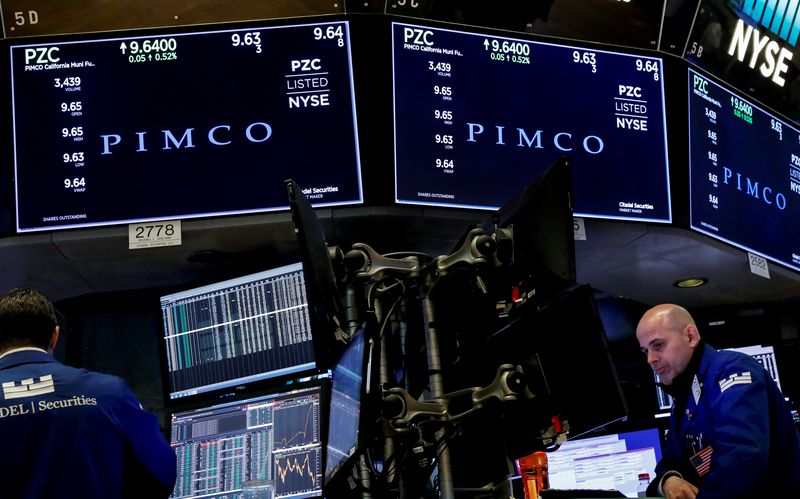Written by Harry Robertson and Yoruk Bahçeli
LONDON (Reuters) – Pimco and other major investors said they would remain in Britain’s government bond market despite recent turmoil, offering Finance Minister Rachel Reeves a potential lifeline as she tries to curb a multi-day sell-off in UK debt.
Asset managers said the sharp rise in UK borrowing costs in recent days would likely force Reeves to cut spending or raise taxes, weighing on UK growth and raising the possibility of the Bank of England cutting interest rates deeper than expected, which could… Calms the markets.
The yield on 10-year British government bonds on Thursday touched 4.925%, its highest level since 2008, rising more than 30 basis points in three days. Meanwhile, the British pound fell to its lowest level since November 2023 at $1,224.
However, the sell-off eased later on Thursday, and 10-year and 30-year bond yields were last flat during the day. Yields rise as prices fall and vice versa.
Pimco, one of the world’s largest asset managers overseeing $2 trillion, said it remained positive on government bonds and that most of the selling was driven by the sharp rise in US yields, reflecting the strength of the domestic economy there.
US bond yields have risen by 50 basis points over the past two months, while UK 10-year bond yields have risen by 55 basis points. However, British yields rose about 10 basis points more than their US counterparts this week.
Peder Bek Friis, an economist at Pimco, told Reuters late on Wednesday evening that a financial contraction was likely. “Weak growth and high interest rates are putting pressure on public finances,” he said.
“If current trends of rising revenues and slowing growth continue, the chances of cutting spending or raising taxes will increase until the government adheres to its new fiscal rules.”
British Deputy Finance Minister Darren Jones on Thursday reiterated the Labor government’s commitment to rules targeting a balanced daily budget by 2029-30 in a bid to calm market nerves.
Craig Inches, head of interest rates and cash at Royal London Asset Management, said the sustainability of UK debt was a concern, and downward pressure on growth from tax increases or spending cuts would weigh on revenues when borrowing is already high.
But he added that he was buying more UK bonds because higher yields made them offer “great value”.
Some investors have argued that the Bank of England is more likely to cut interest rates than the market currently expects. Financial markets are currently pointing to fewer than two 25 basis point cuts this year.
“The shift in the government’s fiscal stance will begin to introduce more downside growth risks to the UK economy this year,” said Ranjeev Mann, senior portfolio manager at Allianz (ETR:) Global Investors.
“We believe the market is likely to start pricing the Bank of England more pessimistically compared to the current rate in the coming months.” Interest rate cuts tend to help bonds by enhancing the attractiveness of those higher-yielding securities currently in the market.
However, RBC BlueBay Asset Management fund manager Neil Mehta said he saw no reason why long-term UK government bond yields would not rise to 6%. UK 30-year yields were trading at 5.364%, their highest level since 1998.
He added: “This is due to deteriorating growth expectations, while at the same time inflation appears to have reached its lowest levels and is moving up again.”

Matthew Ames, investment director at abrdn, said he would assess market movements over the next 24 hours.
“Once the gold market starts moving, it starts moving,” he said. “There’s no point in getting in the way of that.”
https://i-invdn-com.investing.com/news/STOCK-EXCHANGE-RUSSIAN-TRADING-SYSTEMS_800x533_L_1414427815.jpg
Source link